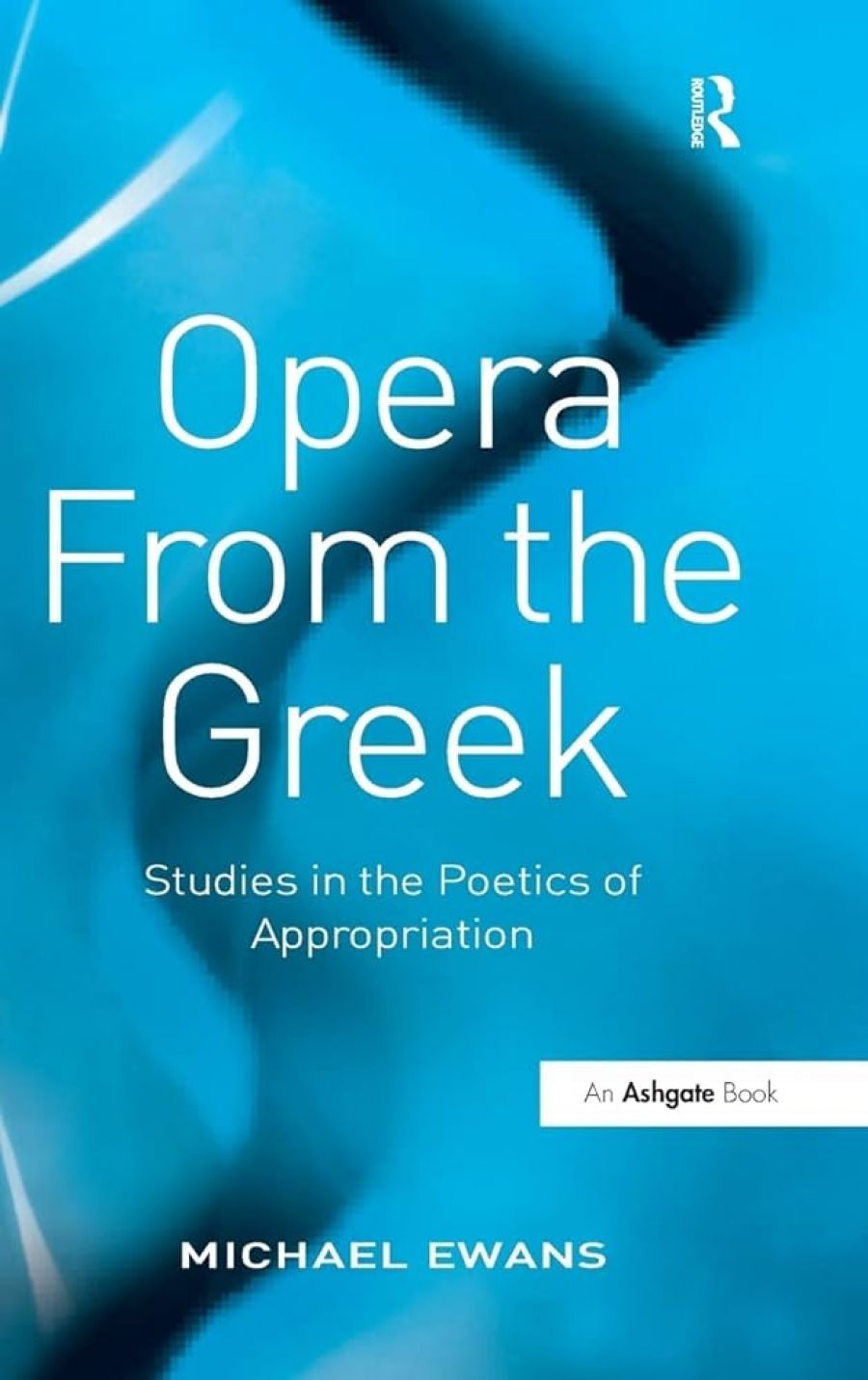
- Free Article: No
- Contents Category: Theatre
- Custom Article Title: The birth of opera
- Review Article: Yes
- Article Title: The birth of opera
- Online Only: No
- Custom Highlight Text:
It has been the opinion of many, most Christian Queen, that the ancient Greeks and Romans, in representing their tragedies upon the stage, sang them throughout. But until now this noble manner of recitation has been neither revived nor (to my knowledge) even attempted by anyone, and I used to believe that this was due to the imperfection of the modern music, by far inferior to the ancient.
Thus writes poet Ottavio Rinuccini to Maria de’ Medici, dedicatee of Rinuccini’s Euridice. Set to music by Jacopo Peri and performed in Florence in 1600 as part of the festivities to mark the marriage of Maria de’ Medici to Henri IV of France, Euridice is one of the earliest surviving operas. Rinuccini, Peri, Caccini and the other inventors of opera sought to address ‘the imperfection of the modern music’ by advocating a type of solo vocal music that took as its starting point the meaning and sentiment of the poetry (as Claudio Monteverdi later put it, the words were ‘the mistress of the harmony’). Hand in hand with this was a manner of delivery that placed emphasis upon dramatic declamation and expression.
- Book 1 Title: Opera from the Greek
- Book 1 Subtitle: Studies in the poetics of appropriation
- Book 1 Biblio: Ashgate, £55 hb, 226 pp
- Book 1 Cover Small (400 x 600):

- Book 1 Cover (800 x 1200):

In the centuries since, composers, theorists and commentators on opera have periodically turned to the ancient world when seeking justification for operatic reform. Friedrich Nietzsche appended The Birth of Tragedy with a Wagner-focused critique of opera in order to present the case for the rebirth of ancient tragedy in the music dramas of one of opera’s most gifted and notorious practitioners. Discussion of ancient Greek drama and theatrical practice, that is to say, has shadowed opera throughout its 400-year history.
In Opera from the Greek: Studies in the Poetics of Appropriation, Michael Ewans draws upon works from across opera’s four centuries. He begins with Monteverdi’s Il Ritorno d’Ulisse in Patria, set to a libretto by Giacomo Badoaro and first performed in Venice in 1640, and ends with Mark-Anthony Turnage’s Greek, premièred in Munich in 1988.
But Ewans, who is Associate Professor of Music and Drama at the University of Newcastle and author of studies on Wagner, Janáček, Aeschylus and Sophocles, is not so much interested in drawing theoretical links between ancient Greek drama and opera as examining a selection of operas that take as their subject matter myths drawn from ancient sources. This involves the examination of eight operas all up. In addition to the two listed above, Ewans considers Iphigénie en Tauride by Gluck and Guillard, Médée by Cherubini and Hoffman, Elektra by Strauss and Hofmannsthal, Oedipe by Enesco and Fleg, King Priam by Tippett, and The Bassarids by Henze, Auden and Kallman. As this list indicates, Ewans’s selection is based upon those operas which are not just settings of ancient myths but are adaptations of extant Greek source texts such as Homer’s Odyssey and Iliad, and tragedies by Euripides and Sophocles.
An advantage of tackling the subject as a series of case studies is that we are presented with reasonably close readings of particular works. This is especially useful when the works under discussion are operas that are somewhat underrepresented in the literature (and on stage): Oedipe and The Bassarids, for instance. As a classicist and opera scholar, Ewans is uniquely placed to draw attention to the conjunctions and disjunctions between ancient texts and their reworked forms as opera libretti. This involves not only pointing out divergences in narrative form and shape, but more subtle transformations of theme and emphasis. His discussion of Médée is especially fascinating, as Euripides’ drama was substantially reworked by Seneca and modified further by French dramatists in the seventeenth and eighteenth centuries before being fashioned into a libretto by Hoffman and set to music by Cherubini in the immediate aftermath of the Terror. Ewans praises Hoffman for banishing latter-day accretions to the narrative and restoring Euripidean elements, and claims that Cherubini was ‘the first composer to develop a musical vocabulary which could successfully recreate in operatic drama the psychological intensity of the most anguished myths in Greek tragedy’.
A disadvantage of Ewans’s case-by-case approach is that the eight operas remain in their separate boxes and there is no attempt to draw broader conclusions from the investigation (indeed, there is no concluding chapter to speak of). The subtitle of the book is telling – Studies in the Poetics of Appropriation – for the chapters function as separate, stand-alone case studies and do not form part of a larger, richer examination of the issues involved. Opera from the Greek presents ‘studies’, not ‘a study’. As for ‘the poetics of appropriation’, while it is an enticing phrase and seems to offer much, it remains conceptually and theoretically underdeveloped, and is present more or less by implication rather than close engagement.
Published by scholastic firm Ashgate, Opera from the Greek is intended as an academic text rather than a book for general readers (that said, more care should have been taken with certain details: the birth and death dates of Lully and Metastasio, for instance, are wildly incorrect). It assumes a reasonably detailed knowledge of the history of opera, a familiarity with music terminology and includes a number of score excerpts.


Comments powered by CComment